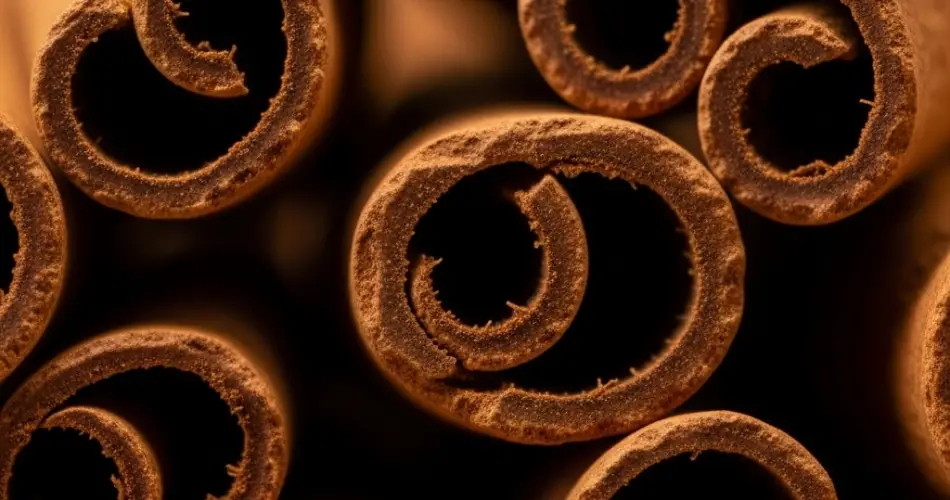Cinnamon is widely known as a delicious spice used in cooking and baking, but did you know it also holds incredible benefits for your plants? Many gardeners overlook this natural powerhouse, which is an effective, affordable, and chemical-free way to support plant health and growth.
In this article, you’ll discover how cinnamon can be used as a rooting agent, insecticide, fungicide, and even a natural fertilizer. These uses make cinnamon a versatile and eco-friendly addition to any gardener’s toolkit.
Why Use Cinnamon for Plants?
Cinnamon contains powerful antifungal and antibacterial compounds, such as cinnamaldehyde, which make it an excellent natural remedy for common plant problems. Unlike synthetic chemicals, cinnamon is safe for the environment, pets, and people, and can be applied easily in various forms.
Using cinnamon in your gardening routine helps promote healthy root development, protect plants from pests and diseases, and improve soil quality.
Cinnamon as a Natural Rooting Agent
One of the most impressive uses of cinnamon is its ability to stimulate root growth when propagating plants. When you take cuttings from plants like roses, tomatoes, or herbs, dipping the cut ends into powdered cinnamon powder encourages root formation.
How to use cinnamon as a rooting agent:
-
Take a clean, sharp cutting from the parent plant.
-
Dip the cut end into powdered cinnamon, coating it lightly.
-
Plant the cutting in moist, well-draining soil or a propagation medium.
-
Keep the soil moist and provide indirect light.
Cinnamon helps prevent rot and fungal infections at the cut site, increasing the chances that your cutting will develop strong roots and thrive.
Cinnamon as a Natural Fungicide
Fungal diseases such as powdery mildew, root rot, and damping-off can severely affect your plants, especially in humid or crowded growing conditions. Cinnamon’s antifungal properties make it a useful treatment to prevent and control fungal infections.
How to apply cinnamon as a fungicide:
-
For seeds and soil: Sprinkle a thin layer of cinnamon powder over seedling soil or around the base of plants to inhibit fungal spores.
-
For plant wounds: Dust cinnamon on pruning cuts or damaged areas to prevent fungal infection and promote healing.
-
As a spray: Make a cinnamon water spray by boiling cinnamon sticks in water, letting it cool, and spraying on affected leaves.
Regular use of cinnamon can reduce the need for chemical fungicides and promote a healthier, more natural garden environment.
Cinnamon as an Insecticide and Pest Deterrent
Many common pests such as ants, aphids, and fungus gnats can cause damage to plants or disturb their growing conditions. Cinnamon acts as a natural insect deterrent, repelling these pests and preventing infestations without harming beneficial insects.
How to use cinnamon against pests:
-
Sprinkle cinnamon powder around the base of plants to create a barrier ants and crawling insects avoid.
-
Dust cinnamon lightly on leaves and stems to deter aphids and other soft-bodied insects.
-
Use cinnamon powder on the soil surface to control fungus gnats by disrupting their breeding grounds.
Because cinnamon is non-toxic, it’s safe to use indoors and around pets, making it a great choice for houseplants and vegetable gardens alike.
Cinnamon as a Natural Fertilizer and Soil Enhancer
Beyond pest and disease control, cinnamon also benefits your plants by improving soil health. It promotes beneficial microbial activity in the soil, which aids nutrient cycling and root absorption. This natural boost helps plants grow stronger and healthier.
You can mix cinnamon powder into potting soil or compost to enrich it before planting. The cinnamon supports good bacteria and fungi, creating a balanced environment for roots to thrive.
Practical Tips for Using Cinnamon in Your Garden
-
Use pure, organic cinnamon powder or cinnamon sticks. Avoid cinnamon blends with additives.
-
Apply cinnamon sparingly; a little goes a long way. Excessive use can dry out soil or leaves.
-
Test cinnamon on a small section of your plant first to check for sensitivity.
-
Store cinnamon in a dry, cool place to maintain its potency.
When Not to Use Cinnamon
While cinnamon is highly beneficial, it’s important not to overuse it. Applying large amounts directly to delicate plants or seedlings can sometimes cause leaf burn or soil dryness. Use cinnamon as part of a balanced plant care routine, alongside proper watering, sunlight, and nutrition.
Conclusion
Cinnamon is more than just a kitchen spice — it’s a powerful, natural ally for gardeners. From helping cuttings root successfully to protecting plants against fungal diseases and pests, cinnamon offers a multi-functional, eco-friendly solution.
Its natural antifungal, antibacterial, and insect-repellent properties make it safe for indoor and outdoor plants alike. Plus, it supports healthy soil and encourages strong, vibrant growth.
By incorporating cinnamon into your plant care regimen, you can reduce reliance on chemical treatments and enjoy healthier, more resilient plants. Whether you’re propagating, treating fungal issues, deterring pests, or boosting soil health, cinnamon is a simple and effective tool that every gardener should know.
Try using cinnamon in your garden and discover the difference this natural remedy can make!



